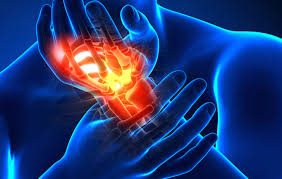
Breaking News
 Tucker Exposes Trump Would-Be Assassin Thomas Crooks' Social Media History, The FBI Coverup...
Tucker Exposes Trump Would-Be Assassin Thomas Crooks' Social Media History, The FBI Coverup...
 This Was A Major Red Flag In 2008, And Now It Is Happening Again!
This Was A Major Red Flag In 2008, And Now It Is Happening Again!
 Trump orders DOJ probe into Epstein's alleged ties with JPMorgan, Clinton and other Democrats
Trump orders DOJ probe into Epstein's alleged ties with JPMorgan, Clinton and other Democrats
Top Tech News
 Blue Origin New Glenn 2 Next Launch and How Many Launches in 2026 and 2027
Blue Origin New Glenn 2 Next Launch and How Many Launches in 2026 and 2027
 China's thorium reactor aims to fuse power and parity
China's thorium reactor aims to fuse power and parity
 Ancient way to create penicillin, a medicine from ancient era
Ancient way to create penicillin, a medicine from ancient era
 Goodbye, Cavities? Scientists Just Found a Way to Regrow Tooth Enamel
Goodbye, Cavities? Scientists Just Found a Way to Regrow Tooth Enamel
 Scientists Say They've Figured Out How to Transcribe Your Thoughts From an MRI Scan
Scientists Say They've Figured Out How to Transcribe Your Thoughts From an MRI Scan
 SanDisk stuffed 1 TB of storage into the smallest Type-C thumb drive ever
SanDisk stuffed 1 TB of storage into the smallest Type-C thumb drive ever
 Calling Dr. Grok. Can AI Do Better than Your Primary Physician?
Calling Dr. Grok. Can AI Do Better than Your Primary Physician?
 HUGE 32kWh LiFePO4 DIY Battery w/ 628Ah Cells! 90 Minute Build
HUGE 32kWh LiFePO4 DIY Battery w/ 628Ah Cells! 90 Minute Build
 What Has Bitcoin Become 17 Years After Satoshi Nakamoto Published The Whitepaper?
What Has Bitcoin Become 17 Years After Satoshi Nakamoto Published The Whitepaper?
Chronic inflammation increasingly recognized as source of most major diseases

There is such a thing as too much medical attention. Most people tend to disagree with this statement, particularly since there are thousands of germs and microbes everywhere. If you don't wash your hands properly before you eat, there's no telling what you'll put inside your body. Thankfully, it's medicine that warns us about the inherent dangers of our lifestyle.
Everyone likes cleanliness. Whether it's the smell, the sight or the very idea of dirt, we don't feel comfortable unless things are tidy and neat. However, the human body actually benefits from some types of bacteria. These little friends that we unwittingly destroy when we use too many cleaning products or antibiotics, or eat processed foods, are actually there for our benefit.
Extensive research on indigenous populations has proven this theory, as their diet and lifestyle is completely opposite to the sterility of modern civilization. Their broad and nutritionally diverse diet is actually a lot healthier than what we find in the supermarket. They may be starving, but they eat right and, in the process, protect their bacterial flora. As a result, their bodies deal with disease a lot more efficiently than ours – ironic, isn't it?
What happens when we say goodbye to bacteria
In nature, there are thousands of examples of symbiotic relationships. In exchange for a premium realty location, the microorganisms in your digestive tract help decompose your food into nutrients for the body. Similarly, dogs are great companions and protectors if we share our shelter and food with them. When one side is exterminated, the other will inevitably suffer.
When we're sick, the likeliest solution is a pill. Antibiotics might jump-start our immune system and get us healthy quickly, but they destroy bacteria by the millions in the process. In just a few days, we can wipe out half of the entire microorganism colonies in our digestive systems. Often, it takes an entire lifetime to reach an optimal level of beneficial bacteria and we kill them without a second's worth of consideration.
So what? Well, if you kill these beneficial buddies, you'll suffer even more in the long run. When the human body is deprived of these relationships, it develops a weakness. For instance, your digestive efficiency goes down a lot. Regardless of how healthy you eat, your body will lack the necessary bacteria to process that food and turn it into something your body can use. But there's another consequence that will kill us even faster.
Inflammation is the unseen killer
The more kinds of bacteria you wipe out from your body's surface and internal systems, the more you expose yourself to an auto-immune response. Once your physiology is accustomed to living without a particular microorganism, it won't see a familiar face when they meet again. Instead, it will automatically think it's harmful and try to attack it by causing an inflammation.
The very same thing happens when you try to replenish your digestive tract with probiotics. There will be a lot of bloating, initially. This sort of friendly fire happens on a regular basis. Fortunately, science has found a way to track it, by means of a protein in your bloodstream. When the C-reactive protein (or CRP) can be observed in your blood tests, it means that there's an inflammation somewhere in your body.

 A WORLD OF DEBT
A WORLD OF DEBT
 Unbanked In A Connected World
Unbanked In A Connected World

